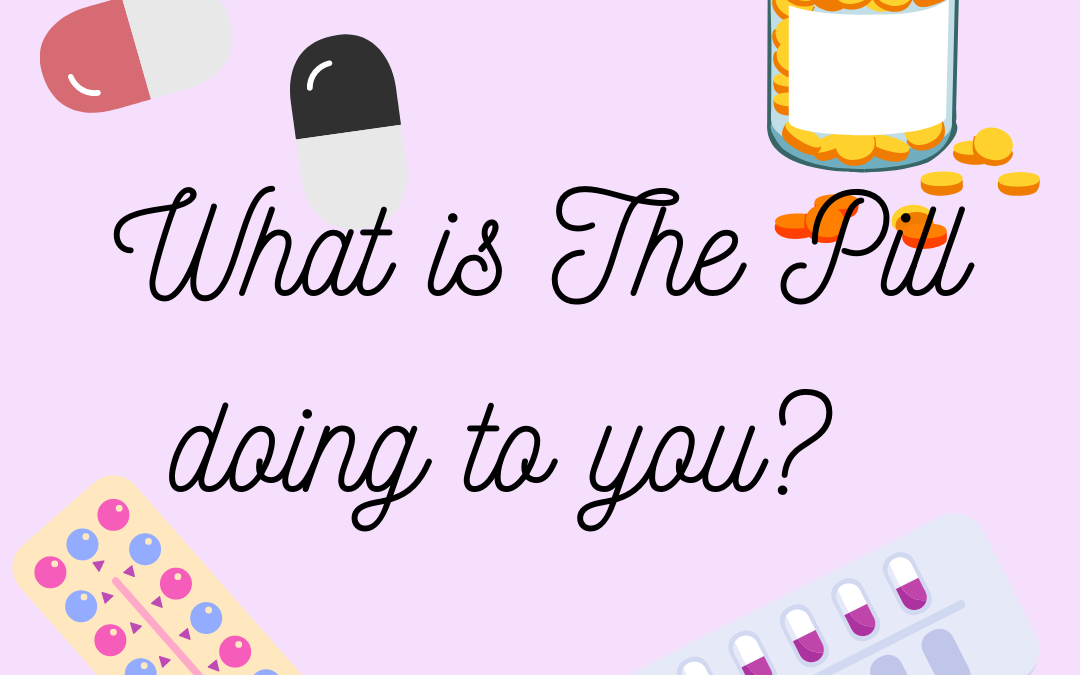So the oral contraceptive pill (OCP) was ground breaking for women’s sexual liberation. It gave women the power to have intercourse without running the risk of an unwanted pregnancy. And that’s awesome, but it doesn’t come without some downsides and to some women these can have disastrous effects.
The OCP is prescribed for so many reasons these days that reach much further than just contraception. Heavy periods, painful periods, acne, short cycles, long cycles are just some reasons you might be prescribed an OCP.
They also come in different forms too. There are combined oestrogen and progesterone pills, mini pills with smaller dosages, just oestrogen and just progesterone pills.
The hormones that are used in the OCP are not natural but rather synthetic versions of the sex hormones we produce as women. And this is where some things can go wrong.
Our sex hormones offer far more to us than the ability to fall pregnant and have a baby.
Oestrogen which is produced throughout our cycle, and present on its own in the follicular phase, has a role to play in bone mineral density, is an antioxidant protecting cells from damage, mood regulating effects, skin health and structure and protective role in the cardiovascular system.
Progesterone, our other sex hormone and produced in the luteal phase, is beautifully calming (unlike oestrogen which is more happy and helps drive motivation) and when not there contributes to symptoms like PMS, heavy bleeding and hair loss.
Mood disturbance
So not every woman is going to experience this, but there is a sub section of the OCP users that find certain pills will exacerbate or cause mood changes. It can be as subtle as feeling cloudy or lacking motivation, or the extreme of fits of rage or high anxiety. So many women that I see, come off the pill and find that the fog lifts and suddenly they feel like they are in control again.
Bone density
Oestrogen is protective against bone loss, hence why when women reach menopause their risk of osteoporosis suddenly increases. Now it would be safe to assume that because most OCP contain oestrogen that it would offer the same protection as our natural hormone. New research coming out suggests it doesn’t. The concern is that generally women are put on the OCP when they first begin menstrual life, the same time as which we lay down the bone mass for the rest of our lives. So adolescent girls using the OCP in this study had lower peak spinal bone mineral density, which is so worrisome given how many girls are placed on the pill.
Breast cancer risk
Similarly, when a woman is put on the pill young, this increases her risk of breast cancer.
This is a reflection of constant exposure to reproductive hormones. Past generations spent a major portion of their reproductive life either pregnant or breastfeeding, reducing their long term exposure to hormones. In our current society we have children later and generally fewer pregnancies.
This study found that some of the common OCP formulations more than quadrupled progestin exposure, compared to our natural progesterone we make ourselves. Concluding that this was very concerning. ()
Fertility
Ok so probably the last thing on your mind if you’re taking the pill, but what about pregnancy chances after taking the OCP?
Well, whilst no correlation between the OCP and reduced fertility has been made, a delay in return of fertility is common.
Now that might not seem worrisome now, but to the 35+yo woman who has been waititng for the right time to fall pregnant, only to come off the pill and find they are not falling pregnant easily, it’s extremely stressful.
Right, so you’re on the pill and you’re now thinking it’s time to come off? Well talk to your health practitioner about it. Make sure that you have got your contraception alternatives locked down. If you have been using the pill for any other reason (acne, heaviness, pain, etc), seek alternative solutions.
Want to know more or get your reproductive health on track? Catch me here!

